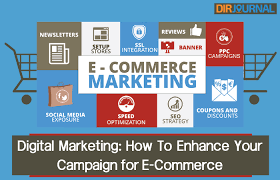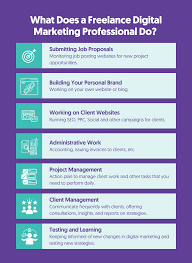E-commerce and E-Marketing: Revolutionizing Business in the Digital Age
In today’s fast-paced world, where technology reigns supreme, e-commerce and e-marketing have emerged as game-changers for businesses worldwide. The convergence of online shopping platforms and digital marketing strategies has revolutionized the way companies operate and connect with their customers. Let’s delve into the world of e-commerce and e-marketing to understand their significance in the modern business landscape.
E-commerce, short for electronic commerce, refers to the buying and selling of goods and services over the internet. It has become increasingly popular due to its convenience, accessibility, and global reach. With just a few clicks, consumers can explore a vast array of products from around the world without leaving their homes. From clothing and electronics to groceries and even cars, almost anything can be purchased online.
The rise of e-commerce has not only transformed consumer behavior but also presented businesses with new opportunities. Companies can now expand their customer base beyond geographical boundaries and tap into previously untapped markets. Small businesses that once struggled to compete with larger establishments can now establish an online presence at a fraction of the cost, leveling the playing field.
However, merely having an online store is not enough to succeed in today’s competitive market. This is where e-marketing comes into play. E-marketing encompasses various digital strategies aimed at promoting products or services through electronic channels such as websites, social media platforms, email campaigns, search engine optimization (SEO), content marketing, and more.
One of the key advantages of e-marketing is its ability to target specific audiences with precision. Unlike traditional marketing methods that cast a wide net hoping to catch some interested consumers, e-marketing allows businesses to tailor their messages directly to individuals who are more likely to be interested in what they offer. This targeted approach increases conversion rates while minimizing wasted resources.
Moreover, e-marketing provides valuable insights into consumer behavior through data analytics. Businesses can track and analyze user interactions, purchase patterns, and preferences to gain a deeper understanding of their customers. This knowledge can then be utilized to refine marketing strategies, personalize customer experiences, and foster brand loyalty.
Another significant aspect of e-commerce and e-marketing is the seamless integration of mobile devices. With the proliferation of smartphones and tablets, consumers can shop anytime, anywhere. This has led to the rise of mobile commerce or m-commerce, which has further expanded the reach of e-commerce. Businesses that optimize their websites and marketing campaigns for mobile devices can tap into a vast market of on-the-go consumers.
However, it’s important to note that with great opportunities come challenges as well. The ever-evolving digital landscape requires businesses to stay up-to-date with the latest trends, technologies, and consumer preferences. Competition is fierce, and businesses must continuously innovate to stand out from the crowd.
In conclusion, e-commerce and e-marketing have transformed the way businesses operate in the digital age. The convenience of online shopping coupled with targeted marketing strategies has opened up new avenues for growth and success. Embracing these technologies empowers businesses to reach a global audience, understand their customers better, and adapt to changing market dynamics. As technology continues to advance, it is crucial for businesses to embrace e-commerce and e-marketing as essential tools in their overall strategy for sustained growth in the digital realm.
Frequently Asked Questions about E-Commerce E-Marketing in the UK
- Is e-marketing a part of e-commerce?
- What is the difference between e-commerce e-marketing and e-business?
- What are the 4 types of e-commerce?
- What is e-marketing in e-commerce?
Is e-marketing a part of e-commerce?
Yes, e-marketing is indeed a part of e-commerce. E-commerce refers to the overall process of conducting business transactions online, including buying and selling goods or services over the internet. E-marketing, on the other hand, specifically focuses on the marketing aspects of e-commerce. It involves using digital channels and strategies to promote products or services, drive traffic to online stores, and engage with customers. E-marketing encompasses various tactics such as search engine optimization (SEO), social media marketing, email campaigns, content marketing, and more. By leveraging e-marketing techniques effectively, businesses can enhance their online visibility, attract customers, and ultimately drive sales within the realm of e-commerce.
What is the difference between e-commerce e-marketing and e-business?
E-commerce, e-marketing, and e-business are related terms that are often used interchangeably, but they have distinct meanings and scopes. Here’s a breakdown of each term:
E-commerce: E-commerce, short for electronic commerce, refers specifically to the buying and selling of goods and services over the internet. It involves online transactions between businesses (B2B), businesses and consumers (B2C), consumers and consumers (C2C), or even government entities. E-commerce encompasses the entire process of online shopping, from browsing products, making purchases, to payment processing and delivery logistics.
E-marketing: E-marketing, also known as electronic marketing or digital marketing, focuses on promoting products or services through electronic channels such as websites, social media platforms, email campaigns, search engine optimization (SEO), content marketing, online advertisements, and more. It involves using various digital strategies to reach a target audience effectively. E-marketing aims to generate leads or sales by creating awareness, building brand loyalty, driving traffic to websites or online stores, and optimizing customer experiences.
E-business: E-business is a broader term that encompasses all aspects of conducting business electronically. It includes not only e-commerce but also other digital activities such as online communication with customers (customer relationship management – CRM), supply chain management (SCM), inventory management systems, electronic data interchange (EDI), online collaboration tools for employees or partners, automated processes like online billing or invoicing systems, and more. In essence, e-business refers to the integration of technology into various business processes to improve efficiency and effectiveness.
To summarize:
– E-commerce focuses specifically on the buying and selling of goods/services over the internet.
– E-marketing is about promoting products/services through digital channels.
– E-business includes all electronic aspects of conducting business beyond just buying/selling; it encompasses various business processes that leverage technology.
While these terms overlap in certain areas and are interconnected in the digital realm, understanding their distinctions can help businesses develop comprehensive strategies that encompass e-commerce, e-marketing, and other e-business elements to thrive in the digital landscape.
What are the 4 types of e-commerce?
There are four main types of e-commerce, each with its own distinct characteristics and business models. These types are:
- Business-to-Consumer (B2C): B2C e-commerce involves transactions between businesses and individual consumers. It is the most common type of e-commerce and is characterized by online retailers selling products or services directly to consumers. Examples include online marketplaces like Amazon, clothing stores, and food delivery services.
- Business-to-Business (B2B): B2B e-commerce refers to transactions between businesses. In this type of e-commerce, companies sell products or services to other companies rather than individual consumers. B2B transactions often involve large quantities and higher order values. Examples include manufacturers selling raw materials to other businesses or software companies providing solutions to enterprises.
- Consumer-to-Consumer (C2C): C2C e-commerce involves transactions between individual consumers through an online platform or marketplace. In this model, individuals can buy and sell products or services directly with each other without the need for intermediaries. Popular examples of C2C platforms include eBay and classified ads websites.
- Consumer-to-Business (C2B): C2B e-commerce is a relatively newer model where individuals offer products or services to businesses. This can include freelancers offering their skills on platforms like Upwork or influencers partnering with brands for sponsored content on social media platforms.
It’s worth noting that there are also hybrid models that combine elements of these four types, such as B2B2C (business-to-business-to-consumer) where a business sells its products through another business to reach end consumers.
Understanding these different types of e-commerce helps businesses identify their target audience, choose appropriate marketing strategies, and determine the most suitable platform for their specific needs.
What is e-marketing in e-commerce?
E-marketing, also known as electronic marketing or digital marketing, is a subset of marketing that focuses on promoting products or services through electronic channels in the context of e-commerce. It encompasses various online strategies and tactics aimed at reaching and engaging target audiences to drive sales, increase brand awareness, and foster customer loyalty.
In the realm of e-commerce, e-marketing plays a crucial role in attracting potential customers to online stores and converting them into buyers. It leverages the power of digital platforms to create effective marketing campaigns that align with the preferences and behaviors of the target audience.
Some common e-marketing techniques used in e-commerce include:
- Search Engine Optimization (SEO): Optimizing websites with relevant keywords and content to improve organic search engine rankings, making it easier for potential customers to find the business when searching for related products or services.
- Pay-Per-Click Advertising (PPC): Running targeted online advertisements where businesses pay only when users click on their ads. This method allows for precise audience targeting based on demographics, interests, and search intent.
- Social Media Marketing: Utilizing social media platforms like Facebook, Instagram, Twitter, or LinkedIn to engage with the target audience through content creation, community building, influencer partnerships, paid advertising campaigns, and more.
- Email Marketing: Sending targeted promotional emails or newsletters to subscribers who have shown interest in the business or its products/services. Email marketing helps nurture leads, build customer relationships, and encourage repeat purchases.
- Content Marketing: Creating valuable and relevant content such as blog posts, articles, videos, infographics that educate and engage users while subtly promoting products/services. Content marketing aims to establish trust with potential customers by positioning businesses as industry experts.
- Affiliate Marketing: Collaborating with affiliates or influencers who promote a company’s products/services through their own platforms in exchange for a commission on sales generated from their referrals.
- Remarketing/Retargeting: Displaying targeted ads to users who have previously visited a website or shown interest in specific products/services. This technique aims to remind potential customers of their initial interest and encourage them to complete a purchase.
These are just a few examples of e-marketing techniques used in e-commerce. The key objective is to create effective digital marketing strategies that attract, engage, and convert potential customers, ultimately driving sales and growing the online business. E-marketing enables businesses to leverage the vast reach and targeting capabilities of digital platforms to maximize their online presence and achieve their marketing goals.




